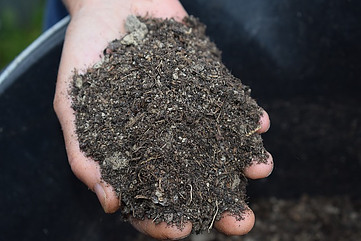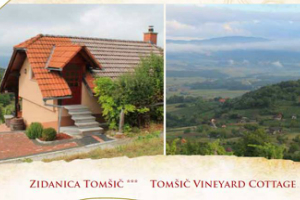Watering the garden is the biggest chore for many people in the summer months. So those tips for water conservation in the garden will for sure come in handy. Anyone who does not want to “run” around the plants with watering cans or a garden hose every evening has come to the right gardening content. Classic surface watering does more harm than good, it is time-consuming, and water consumption is enormous, as much of it immediately drains or evaporates. We will present tricks to reduce the frequency of watering gardens and thus save on water consumption. Even without problems, we are away from home for a few days in the summer or from our garden.
Let’s Look a Little Outside Our Garden First
Have you ever wondered who waters all these green forests that surround our country in the middle of summer? Who cares that the meadow flowers don’t wither? You might find it a bit funny. But nature has a system in which, even in the middle of summer, it rarely suffers from a lack of water. Drought always occurs first on intensively cultivated soils (fields). The forest floor is constantly covered with a thick layer of humus and fallen leaves, which slowly compost. Intensively cultivated soils are always bare.
Water Conservation in the Garden Begins With the Mulching of the Ground
If we transfer the practice from the forest, which has worked perfectly for millions of years, to the garden, we immediately reduce the need to water the vegetables. It is, therefore, the practice of covering the floor so that it is not bare and exposed to external factors. We have several types of mulch available, but the main thing is to be brave and mulch abundantly. Our favorite is compost mulch. As a mulch, it prevents water from evaporating from the soil, but even better than that, it absorbs large amounts of water and holds it inside like a sponge. During the rain, the water in the compost is saturated with nutrients and slowly seeps into the depths and fertilizes the plants. It happens the same as in nature. The need to water the garden with compost mulch is only in really long dry periods.
Do Not Pamper the Vegetables by Watering Them
If you already water the garden regularly in the spring, you spoil your plants and make them dependent on frequent watering. Such a garden is heavily dependent on regular watering in the summer. The plants have a developed shallow root system, as they obtain all the water on the surface due to watering. They are not resistant to dry periods and are usually less well-stocked with nutrients. When planting and transplanting, water the plants really well, then gradually as little as possible, so that they develop a deep root system and take care of being supplied with water and nutrients. This is how we nurture a garden that is as independent as possible from our care.
The Following Way for Water Conservation in the Garden Is Dense Seeding of Beds
Shading and soil coverage can be achieved by dense planting of vegetables. There is a 3/4 rule, which says to plant plants so densely that at 3/4 of the final size, the green parts of the plant touch. This creates a canopy of greenery that covers or shadows the ground. As a result, the evaporation of water from the soil and the growth of weeds is reduced. Dense plantings are especially suitable for salads, carrots, brassicas, and legumes.
Olla Containers for Deep Watering
The water needs of plants differ between different types of vegetables. Fruit trees are one of the garden’s more “thirsty” plants, but most water needs are met with abundant mulch. This need or concern is even greater if we grow them in pots. Olla containers are 1x fired, unglazed clay containers of various shapes, which are buried in the ground up to the narrow throat, and water is poured into them. The water slowly seeps through the porous walls and deep waters the nearby plants. This ancient watering technique originated in North Africa and was also used in ancient China for over 4,000 years. Even today, this technique is used in India, Iran, Brazil, and Sri Lanka, … but intensive soil cultivation techniques are replacing it. For smaller areas of the garden, high beds, or balcony plantings, this ancient knowledge comes in very handy!
Hoeing Regularly
When the bare soil becomes dry, the natural evaporation of water begins, as water channels are brought from the deeper layers of the soil to the surface, through which moisture in the soil is lost. By hoeing the soil, we break up the top layer of the soil, destroy water channels and limit water evaporation. So, hoeing is not just about removing weeds. Even if there are no weeds in the garden, we regularly water all the beds in the summer. A swing hoe is most effective for this.
Do the Watering in the Evening and Not With Cold Water
When none of the above works for you in the garden and you stick to the classic watering of the soil, you will achieve the most significant effect if you water in the evening when the soil has cooled down. This ensures that the water does not evaporate from the surface, but more remains in the soil, where it is available to the plants. When we water in the evening, the water in the watering can or garden hose also heats up during the day. This reduces the shock of cold water on warm plants and heated soil. The evening time is the most suitable for watering, according to the biodynamic method, because the forces are directed into the soil, and the watering is much more effective.
Water Conservation in the Garden in Brief
To feel the most beautiful moments in the garden, we garden in such a way that nothing burdens us. Plant dependence on regular care quickly becomes an obligation that can burden us. Solutions for easier watering of the garden are available; we have to notice and choose the ones that will work best for the plants and us. We swear by compost mulch in our garden, which creates universally fertile soil, so “we kill several flies with one stone.”
